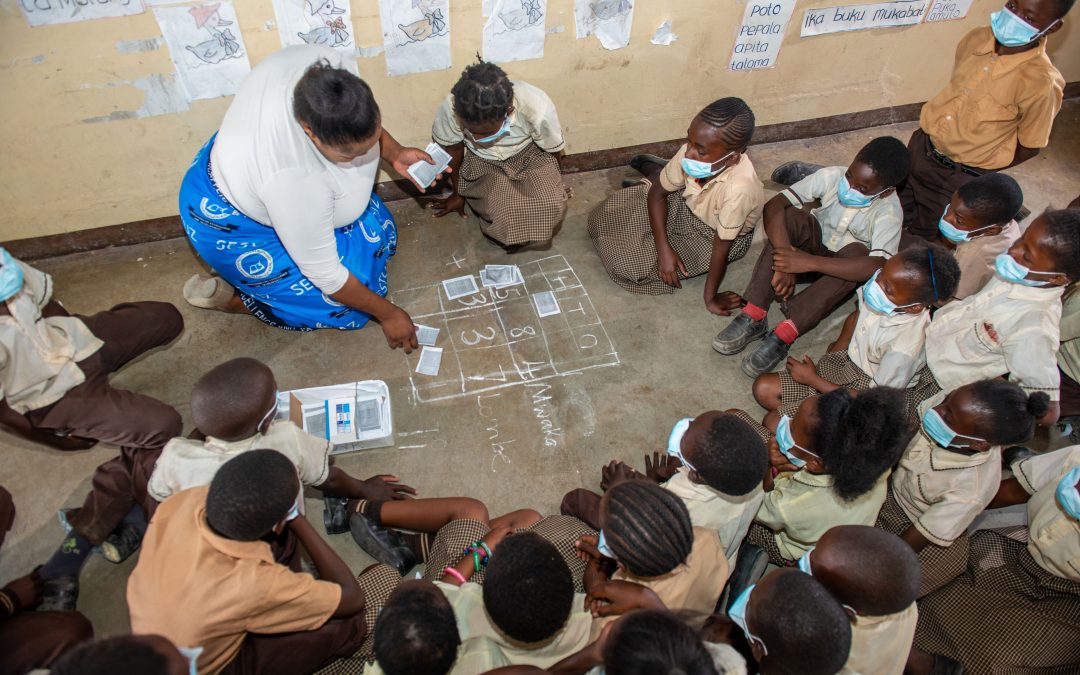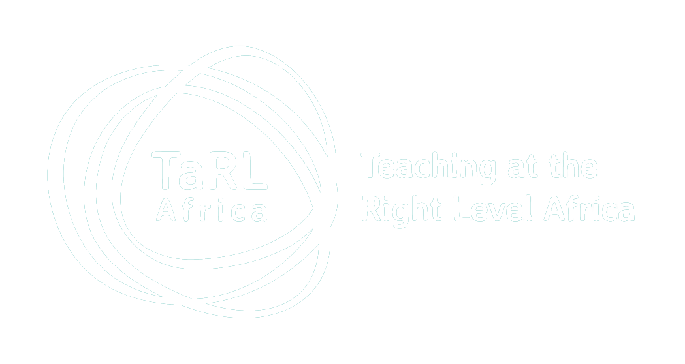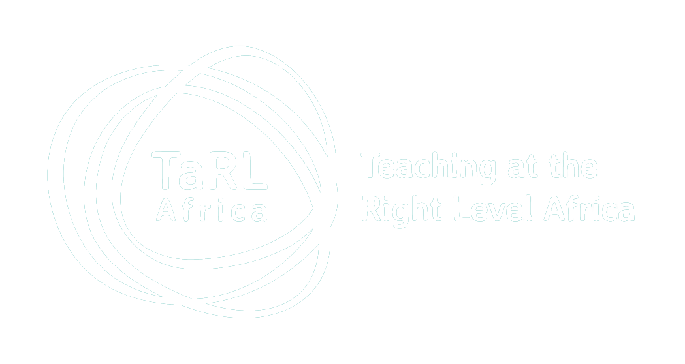
A teacher demonstrates a math activity to whole class during a Catch Up (TaRL) session in Zambia. Photo: Catch Up Program, VVOB and TaRL Africa.
For many children in Africa, research shows that most of those who attend school are not acquiring the basic skills necessary for learning. The COVID- 19 pandemic further exacerbated the learning crisis due to extended school closures as a measure to prevent the spread of the virus. In fact, according to the World Bank, learning levels across the region are alarmingly low. Among second-grade students in several Sub-Saharan African countries, three-quarters cannot count beyond 80 and 40 percent cannot do a one-digit addition problem. In reading, between 50 and 80 percent of children in the second grade cannot answer a single question based on a short passage they had read, and a large proportion cannot read even a single word. Although this research alludes to the year before the pandemic, my experiences leading an education program, Teaching at the Right Level Africa, shows that the statistics are just as grim today.
The reality is that for many children access to remote learning tools such as digital devices and home based learning support during the pandemic is limited because of various reasons such as poverty, low education levels among parents and guardians, long working hours, and other competing priorities in the home. Therefore, as education actors call for more support for learners at home and recognize the role of parents in their children’s education, teachers continue to play a primary role in imparting knowledge and skills. Teachers will play a crucial role in the recovery phase post-COVID-19. Of utmost importance will be to focus on ensuring foundational learning such as reading, number recognition, and basic operations, especially in early grades. Children cannot progress in learning without mastering the basics first. Studies show that poor learning results emerge early and accumulate over time. Often, children who miss key concepts in literacy and numeracy in the early grades never have a chance to catch up, no matter how many years they spend in school.
Many school systems cling to over-stuffed curriculums and outdated teaching methods. Teachers lack the training or permission to be innovative or to veer from the course set by textbooks. My experience is that when teachers are allowed to deliver innovative learning approaches targeted to meet individual learners’ needs, the result has always been an improvement in learning outcomes for the children. One such approach is a technique that has been pioneered for over two decades by Pratham, called Teaching at the Right Level (TaRL) which uses easy oral tests to sort children into groups that match their learning levels rather than their age. TaRL is supporting governments and partners to address the learning crisis in Africa through evidence that has been studied for years by researchers from the Abdul Latif Jameel Poverty Action Lab at the Massachusetts Institute of Technology. The children gather for one hour each day to practice either maths or reading using fun and creative activities.
Teachers must advocate for training to deliver quality education that draws on flexible methods, digital technologies, and modernized curricula and approaches that prepare children for the modern world where more self-learning, innovation, problem-solving, critical thinking and social skills are needed.
Governments across Africa must take bold steps to allow flexible delivery of education methods that include innovative approaches to learning and sustained support for teachers. As the world focuses on COVID-19 recovery we need education – the great equalizer, to be resilient, adaptable, inclusive so that no child is left behind.

